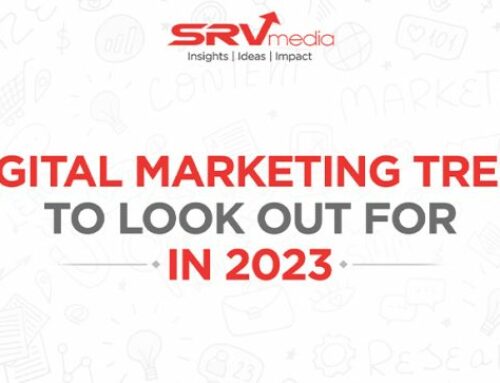Digital Marketing With Google Analytics: Why It’s Important

The introduction of social media changed the perception of marketing across the world. It has given brands the power to position themselves boldly in the minds of the audience through witty and engaging content. This idea of platforms that support free-to-post and creatively liberating content has created a niche for itself. It is known as digital marketing. Digital marketing encompasses not only social media but any form of online content published on a digital medium. It also includes measuring results with digital marketing analytics tools.
Since brands have understood its importance, they approach digital marketing companies, which offer them different types of services. One of them is using web analytics in digital marketing to measure how the company is performing digitally. Let’s understand the role of web analytics in digital marketing.
Analytics uses several metrics to gauge that. These metrics usually differ from platform to platform. However, the most popular platform among marketers is Google Analytics. Use of google analytics in marketing has picked up pace as it is an effective go-to tool to review the performance of a digital marketing campaign.
From analysing website traffic to counting social media impressions, the aspect of digital marketing Google Analytics gives valuable insights from the data it examines. However, you may feel lost with Google Analytics if you don’t know which tools are beneficial for you.
The questions then arise – What is Google analytics in digital marketing? How Google analytics helps in digital marketing and to boost marketing efforts? Let’s answer it step-by-step.
1. Traffic channels
The first information brands need to measure is their user interaction online. How much traffic does your website get in a day? Where do these users come from? What is the purpose behind their visit? These questions can be answered by utilising tools such as Google Analytics. Here are a few parameters you should look at:
- Organic – If your website can organically generate a lot of traffic, it means that your website’s search engine results pages (SERP) rank is high. It indicates that your SEO strategy has come to fruition.
- Social media – Strategic social media posts can redirect traffic to your website. The higher your social media following, the more traffic you redirect.
- Email – Generating traffic from the embedded links in an email is a standard tool for marketers. It also serves the purpose of generating leads.
- Paid search – This is useful in tracking PPC campaigns, whose purpose is to direct traffic to the website, as well as generate leads. You can link your AdWord campaign in Google Analytics through the acquisition tab.
- Referral – When a user clicks on a link to your website on another site, it refers to referral traffic.
You can find these options in the acquisition channels report.
2. Site Content
Upon visiting your website, users will go through several pages like the services page, product page, etc. The purpose of visiting these pages will differ from user to user. With the help and use of google analytics digital marketing techniques, you can measure how long these users stay on a particular page, or how many more pages they navigate. This helps you analyse how the content on your site is performing, which is vital if you want your website to be at the top of Google search results. This is also known as data analytics in digital marketing which involves collecting and analysing data to understand your audience better. The analysis is done by looking at different types of pages. Let’s take a look at them.
- Home page – The landing page gives you an idea about the conversion rate of the website. It is because this page acts as a starting point for the user to navigate different pages. If the user completes the expected journey, the page where the journey started is accredited with converting the user. It, therefore, gives the impression of how important it is for the user to like the website’s landing page so that it makes for a pleasant user experience.
- Exit page – The exit page is where the user leaves the website. It could be because they finished their conversion or were done navigating the website. Google Analytics helps you to track and analyse your user’s journey.
- All pages – All pages provide data about pages that were viewed on what date and for how long. You can access the data for a week, month or year. This helps you figure out which pages on your website receive the most traffic.
The metrics used to analyse these types of pages are:
- Pageviews – Calculates each session on a particular page.
- Entrances – The entry points to your website.
- Bounce Rate – The rate at which users leave your website immediately after visiting the home page.
- Page Value – Calculates the money generated through page views.
3. Monitoring your audience
Google Analytics helps you monitor your audience by tracking your website’s users over a week, month or year. These users are segregated into specific cohorts (a group of people) based on characteristics and interests. It helps you isolate them and analyse their behaviour. The behaviour could be either an interest in a service or a purchase of a product. It thus enables you to identify the benefits of your user and create your marketing strategy accordingly.
The market strategy should be designed with a key demographic in mind. Knowing the demographic helps with curating the right content. For example, if one of your products or services is very popular among a particular demographic range, you effectively advertise that service or product to the target audience. This is another aspect where google analytics marketing strategy is beneficial.
There you have it – the tools in Google analytics for digital marketing that will be useful to you in the long run. If you seek professional help with regard to this, look no further than SRV media, one of the finest digital marketing companies in India. Our result-oriented team is experienced in creating marketing strategies that will not only improve your digital presence but also bolster your brand awareness.












